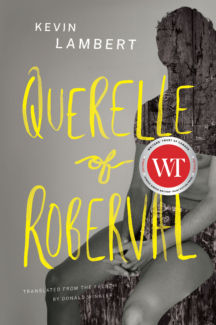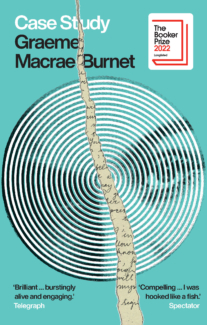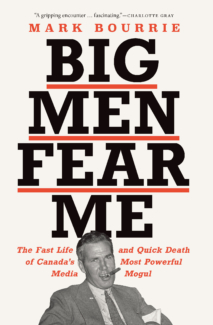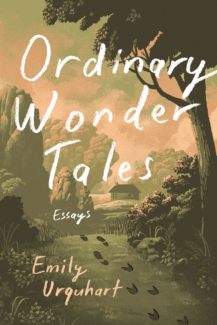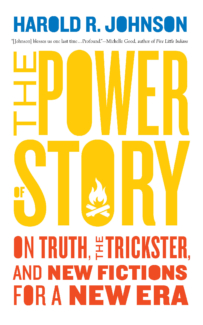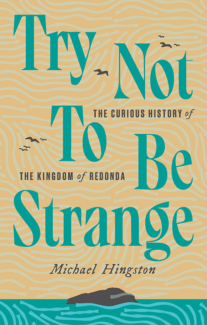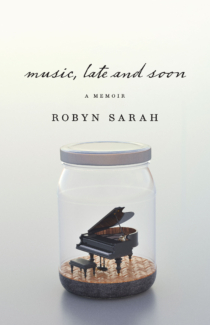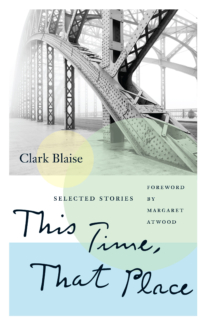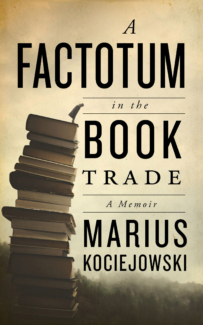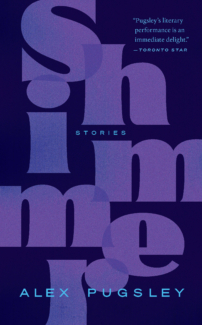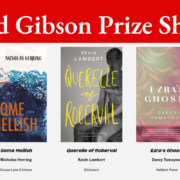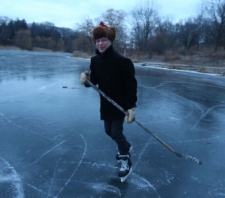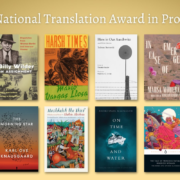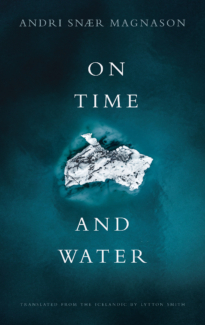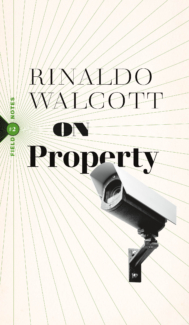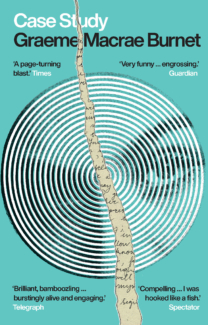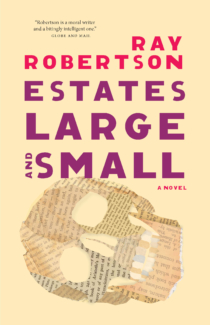Media Hits: QUERELLE OF ROBERVAL, BIG MEN FEAR ME, ON BROWSING, THE POWER OF STORY, and more!
IN THE NEWS!
Querelle of Roberval (August 2, 2022) by Kevin Lambert translated by Donald Winkler was reviewed at the Globe and Mail. The review was published online on October 4, 2022. Read the whole review here.
Reviewer Ian McGillis writes,
“Lambert fully earns the company of his invoked forebears—Genet the teller of inconvenient truths, and the ancient Greeks, in whose work tragedy unfolds with the inexorability of a change in the seasons … Lambert’s prose, seamlessly rendered in English by Donald Winkler, meets all the demands of an ambitiously structured work. His default mode is a spare voice describing extreme things with a reined-in economy. But there are other feathers in his bow. With equal facility he can go full-on granular … or big-picture poetic, taking off on flights of numinous lyricism.”
Querelle of Roberval was reviewed by The Fiddlehead. The review was published online on October 7, 2022. You can read the whole review here.
Reviewer thom vernon writes,
“unabashedly thrusts and skewers its way to its end … Lambert’s Querelle of Roberval is far more than a titillating romp sniffing around the blades, bar stools, and crotches of beleaguered labour; it is a blistering hunt for a liberation that may never come.”
Querelle of Roberval was also reviewed by the Consumed by Ink blog on October 7, 2022! You can read the review here.
Reviewer Naomi McKinnon, who discusses Querelle alongside Lambert’s first novel, You Will Love What You Have Killed, writes,
“I recommend both of these books to those of you who dare … How to explain that something shocking and horrifying can also be good?”
Querelle of Roberval was featured on the podcast Getting Lit with Linda. The episode aired on October 7, 2022. You can listen to the whole episode here.
Reviewer Linda Morra says that Lambert is
“in possession of a prodigious talent … something of a cross between Stephen King and Alice Munro. If these two had a child-writer, they’d spawn Lambert. The grisly viciousness and the explicit gore of the former, and the psychological savvy, depth of motive, and ironic tone of the latter … I had trouble both putting the book down and continuing to read as only a truly horrifying and well-written book would compel a reader to do … A dextrous hand, laying bare human impulses and tracing the mysteries of persons, institutions, and larger stories of which they’re all a part.”
Pick up your copy of Querelle of Roberval here!
Case Study by Graeme Macrae Burnet (November 1, 2022) has been reviewed by Shahina Piyarali in Shelf Awareness. Published online on October 3, 2022. Check out the review here.
Piyarali writes,
“Burnet’s deployment of multiple narrative structures, his finely tuned depiction of Braithwaite, and the fascinating revelations of the diarist result in an unforgettable story, one that will rattle readers long after its startling, disorientating ending.”
Grab your copy of Case Study here!
Big Men Fear Me by Mark Bourrie (October 18, 2022) has been reviewed by John Ibbitson in the Globe and Mail. The review was published online on October 5, 2022. Read the full review here.
Ibbitson writes,
“Mark Bourrie has written a simply splendid book about George McCullagh, founding owner of The Globe and Mail, who dominated the worlds of politics and journalism in Ontario during the 1930s and 40s, but who has virtually been lost to memory. Bourrie’s book positively sings … [it] is thoroughly researched and the prose is clean and engaging … McCullagh deserves to be known … He made The Globe the dominant voice in English Canadian journalism. Bourrie’s biography does him full justice.”
Pick up your copy of Big Men Fear Me here!
Ordinary Wonder Tales by Emily Urquhart (November 1, 2022), has been reviewed by Joan Sullivan in The Telegram (SaltWire)! The review was published on October 7, 2022. Read the full review here.
Sullivan writes,
“Ordinary Wonder Tales is so well-written, so full of enriching, unexpected connections, so captivating; a reader will be tempted to consume it in gulps, and then go back for seconds.”
Ordinary Wonder Tales was also reviewed in The Link! The review was published on October 12, 2022. Read the full review here.
Claire Helston-VanDuzer writes,
“Urquhart’s corrobation of legends to day-to-day life offers the same getaway and warmth that indulging in a supernatural world can. So, to all the retired fantasy lovers out there, please do yourself a favor and read this book … Ordinary Wonder Tales has opened my eyes to the ways that the mythical can allow opportunity for women to tell their own story in a forgiving environment. It has encouraged me to seek out other narratives that do the same.”
Order your copy of Ordinary Wonder Tales here!
The Power of Story: On Truth, the Trickster, and New Fictions for a New Era by Harold R. Johnson (October 11, 2022) has been featured on CBC Books as one of their October reads. The list was published online on October 6, 2022. Check out the full list here.
CBC writes,
“In this posthumous work, Harold R. Johnson makes a case for how stories can shape and change our lives for the better if only we are willing to employ story as the world-building tool that it is.”
The Power of Story was featured in La Ronge Now. The article was published on October 11, 2022. Check out the full article here.
Derek Cornet writes,
“Harold illustrates how people can direct their potential to re-create and reform not only their own lives but the life everyone shares.”
The Power of Story has also been featured in The Saskatoon Star Phoenix. The article, which features an interview with Joan Johnson, was published on October 11, 2022. Check out the full article here.
Joan Johnson says, in the interview:
“Everything in The Power of Story is a culmination of Harold’s life, his experiences and his belief system.”
Pick up a copy of The Power of Story here!
On Browsing by Jason Guriel (October 4, 2022) has been reviewed at the Winnipeg Free Press. The review was published Oct 7, 2022. You can read the whole article here.
Reviewer Chris Smith writes,
“Browsing is many things: a lifestyle, a relaxation, a revelation if your search finds a long-sought book or a rare recording, and perhaps more importantly a soul-refreshing excursion in a world of instant online search-and-buy options….Guriel, a lifelong browser, wrote this booklet of essays while detained at home during the COVID pandemic and reduced to scrolling, without access to his beloved physical media and the combined sensations of holding a book in your hand while your brain processes the value of the words within it.”
Jason Guriel, author of On Browsing, was interviewed with City News Toronto at The Big Story podcast. The episode is called “What do we lose when our malls disappear?” Listen to the whole interview here.
“Browsing,” Jason says, “is a kind of aimlessness that widens; it doesn’t narrow.” When asked how a person can experience that lost feeling of browsing, Jason recommends “leaving your phone at home and setting out for a walk. Arrange to be truly by yourself for a while.”
Grab a copy of On Browsing here!
Try Not to Be Strange: The Curious History of the Kingdom of Redonda by Michael Hingston (September 13, 2022) has been reviewed by Michael Dirda in the Washington Post. The article was published on October 6, 2022. Check out the full review here.
Dirda writes,
“It’s a wonderfully entertaining book, an account of how its Canadian author grew fascinated with a literary jape, a kind of role-playing game or shared-world fantasy involving some of the most eccentric and some of the most famous writers of modern times.”
Pick up a copy of Try Not the Be Strange here!
Robyn Sarah‘s Music, Late and Soon (August 24, 2021) has been reviewed at the Miramichi Reader. The review was published on October 13, 2022. You can read the rest of the review here.
Reviewer Michael Greenstein writes,
“Part sonata, part symphony, far more than a memoir, Music, Late and Soon introduces a number of memorable characters worthy of a novel, and an array of orchestral instruments that modulate the prose, melodies, and personalities surrounding the author’s life”
Grab you copy of Music, Late and Soon here!


